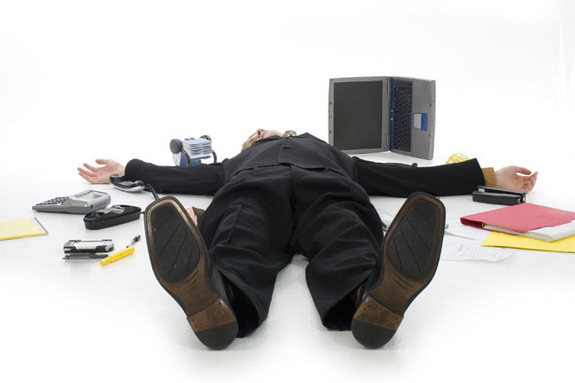 Let us now introduce one of the most important of all healing principles, if not the most important, is that of total body load. It is the key to all recoveries and overcoming all disease processes.
Let us now introduce one of the most important of all healing principles, if not the most important, is that of total body load. It is the key to all recoveries and overcoming all disease processes.
No doctor really cures anything; Nature does that. All the successful physician can do is to reduce body load to allow this process to take place. Unfortunately, modern medicine with its pharmacology arsenal often adds to the biological burden instead of relieving it.
Along with all living creatures we are endowed with a number of key regulatory mechanisms. One can only be amazed that they rarely seem to break down, rather than being surprised and disconcerted when they do. The skin protects us from temperature variation and dehydration, the immune system wards off micro-organisms, the kidneys eliminate poison waste, the liver detoxifies an ever-increasing amount of xenobiotic chemicals and other factors regulate the acid-base balance within the body.
Every day, every minute, trouble is nipped in the bud before it gets started and we remain unaware of what is taking place: we feel OK. It is only when the defenses are overworked that we actually experience any health problems at all. By the time we are aware of a symptom, any symptom, the defenses have already broken down and matters are really quite serious.
Overload
Overloading the system is thus asking for trouble.
The commonly used metaphor image for the overload phenomenon is that of the overflowing barrel. If we imagine the barrel to be the body’s ability to cope with exterior stressors and the moment of overflow to be the onset of symptoms, then it is obvious that anything which adds to the liquid in the barrel will potentially precipitate disease.
The actual overload process isn’t specific. Any one of a number of aetiological factors could cause it to occur, such as an allergy, lack of sleep, poor nutrition, a sudden shock, overwork, stress or an acute viral episode.
It may seem superfluous to point out that several of these factors can work in combination, bringing an almost infinite diversity of symptom and disease possibilities. Mental breakdown, heart disease, ulcers and cancer are just some of the possibilities.
There are many ways to overload – the table below summarizes most of these. A mere glance will tell you that this list is also a summary of clinical ecology to date.
|
PHYSICAL FACTORS |
Heat Cold Electromagnetic radiation Mercury toxicity Oxidative stress |
|
CHEMICAL FACTORS
|
Pollution Alcohol Recreational drugs Medicines |
|
BIOLOGICAL FACTORS |
Micro-organisms (virus, bacteria, parasites) Endocrine dysfunction Allergy Nutritional deficiency Fatigue |
|
PSYCHOLOGICAL FACTORS |
Stress Work load Personality disorder |
A word of warning: Much confusion can result from the fact that the last overload factor introduced may seem to be the (only) one which causes symptoms. This is very misleading. One stressor alone is unlikely to overwhelm the body’s considerable defense resources.
It is a cumulative thing: so an individual may be living an entirely unhealthy lifestyle, eating and drinking stress foods, not taking adequate rest, feels disoriented and depressed due to brain allergies and then, when made redundant at work, suddenly “flips” as people say and guns down a bunch of innocent people in the neighborhood.
Much may be made in court of this person’s unhappy reaction to the fact that his wife just walked out. But it is not the cause of the violent outburst, it is the last overload factor to operate against this person’s ability to balance and cope with life.
Other factors may have been operative for years: unhappy childhood, financial stresses, poor diet, hypoglycaemia, wheat allergy that makes him feel aggressive, lack of magnesium (which soothes and calms), a smoldering virus which makes him feel ill most days, and toxic chemical overload that spaces him out, like a Mickey Finn. Looked at in this light, mental rage is only one aspect of a much greater situation of compounded overload.
Reducing The Load
The opposite side of the equation works just as effectively and can be turned to good use by a physician. Any legitimate means of reducing body load helps, directly or indirectly, with any illness: better nutrition will aid the fight against cancer; clearing up hidden infections such as Candida will reduce PMT; eliminating hairsprays and perfumes may improve catarrh (even though dust may be the main cause); stopping smoking aids fertility and moving away from geopathic stress will help alleviate almost any disease process.
Eating fewer stress foods definitely helps. Stress foods include allergy and intolerance foods, refined carbohydrates and food additives (chemical burden).
I am famous, or perhaps I should say notorious, for saying on the BBC that even a divorce might help your allergy problem!
Now you may understand why you can eat a food you are normally allergic to while on holiday (where your mental stress and, probably, the amount of chemical pollution is far less) with no ill effects but why, when you are upset, all your food cravings return with a vengeance!
If you understand overload and work to avoid it, this very important principle will serve you well. I believe emphatically in Hippocrates’ key holistic health principle: that we must all take responsibility for our own health and strive to maintain balance, avoiding the risk of overload.
Connect with us: Facebook – Twitter – LinkedIn – Google+ and take a look at our videos!
The post Overloading the System – Asking for Trouble appeared first on Alternative Doctor Dev Site.
